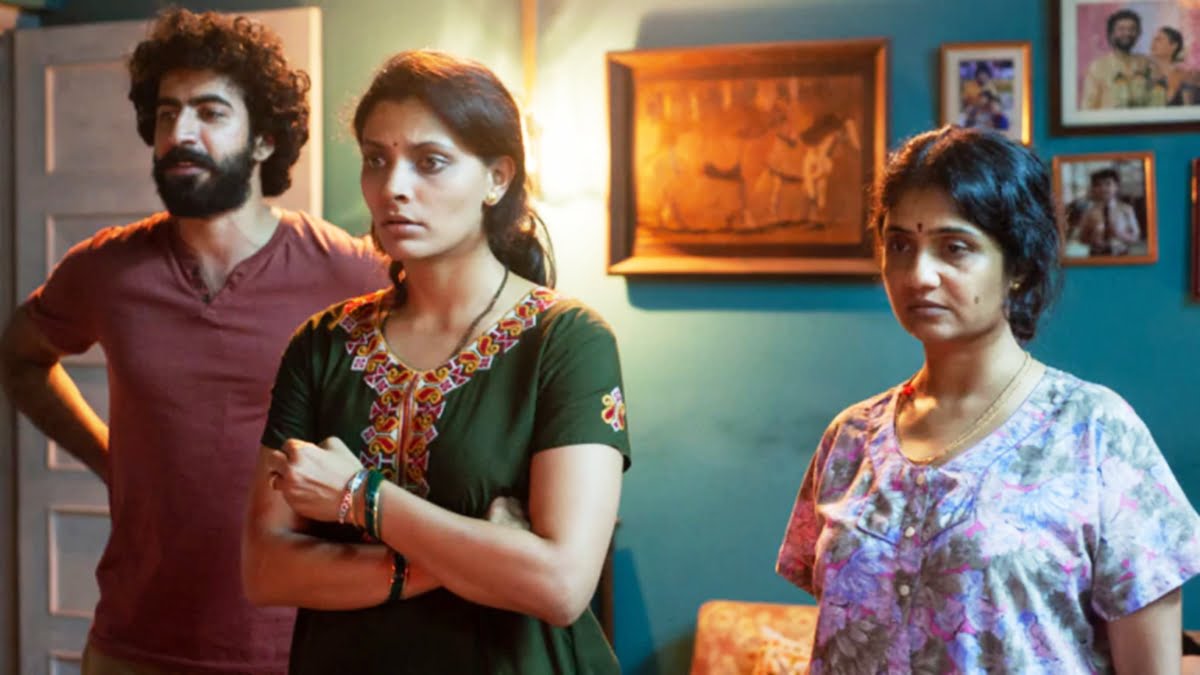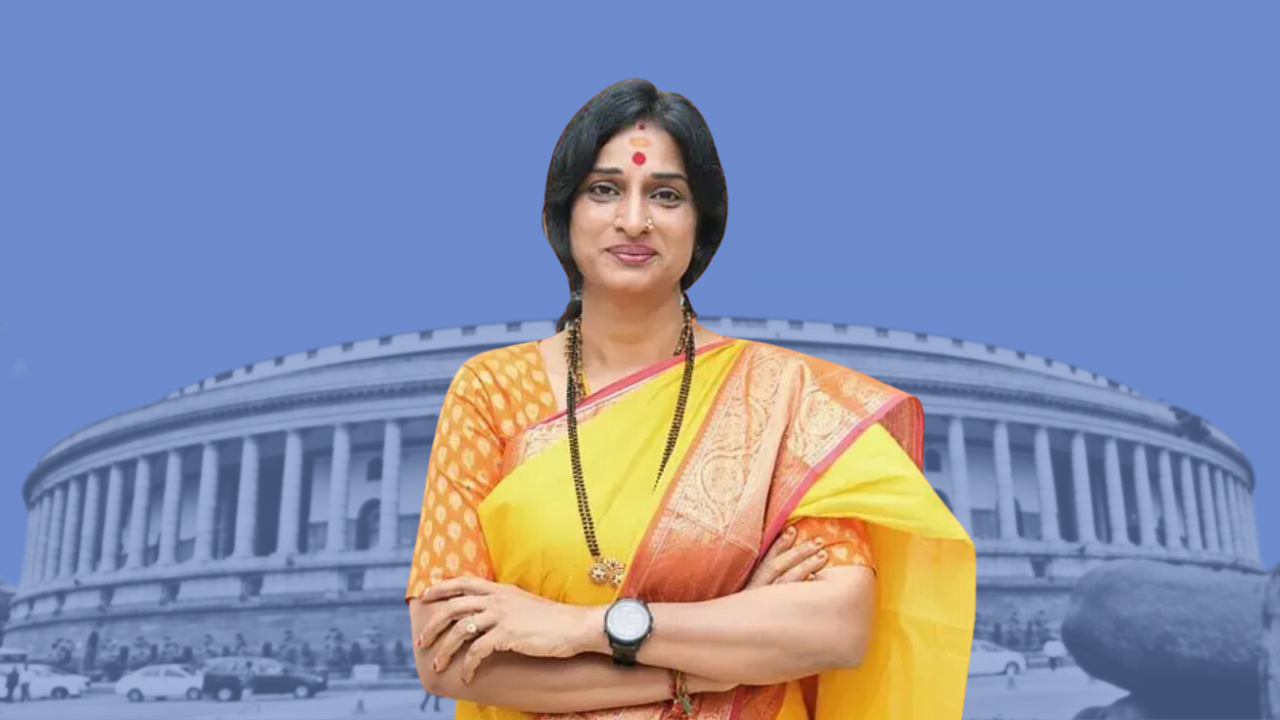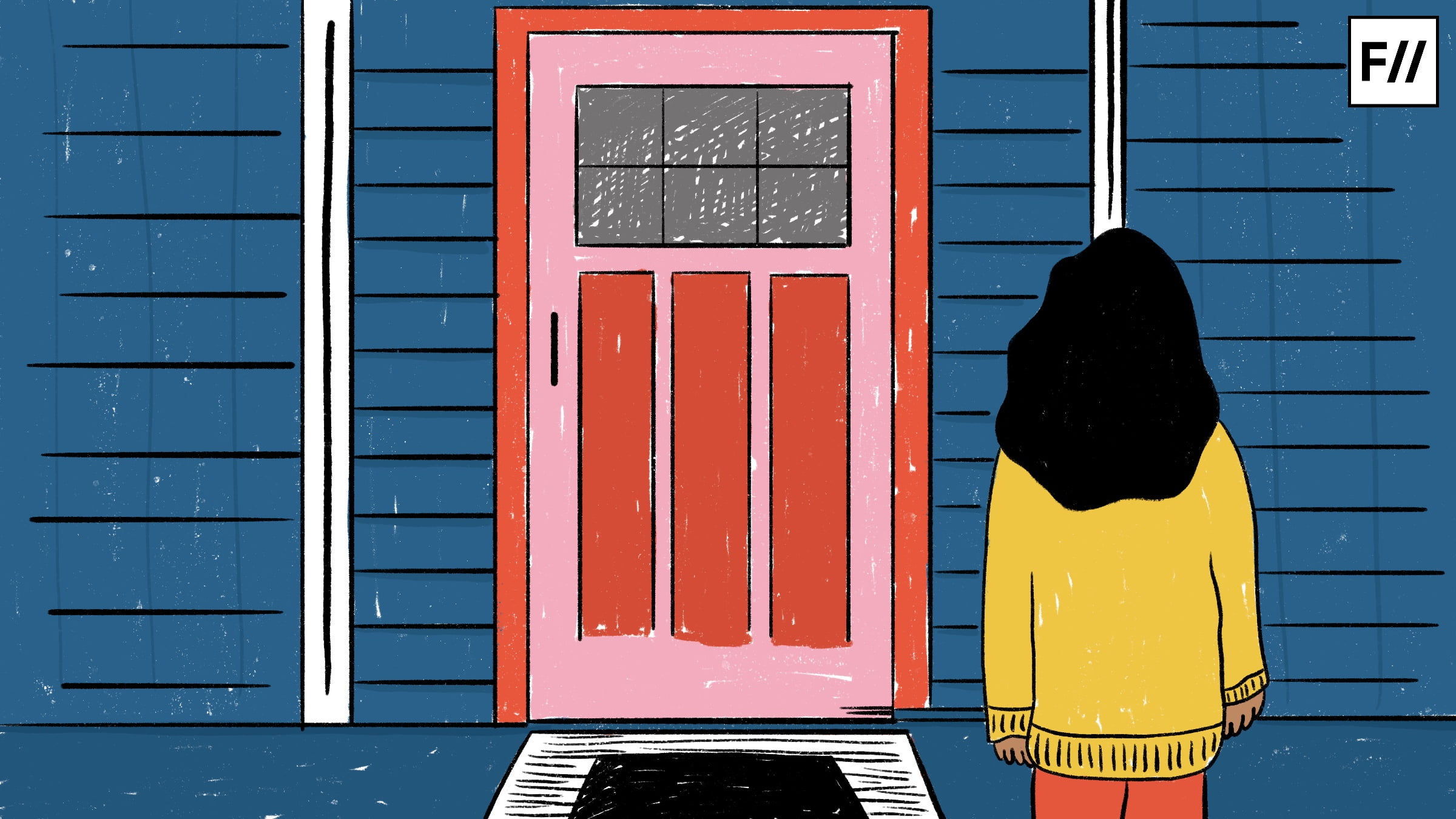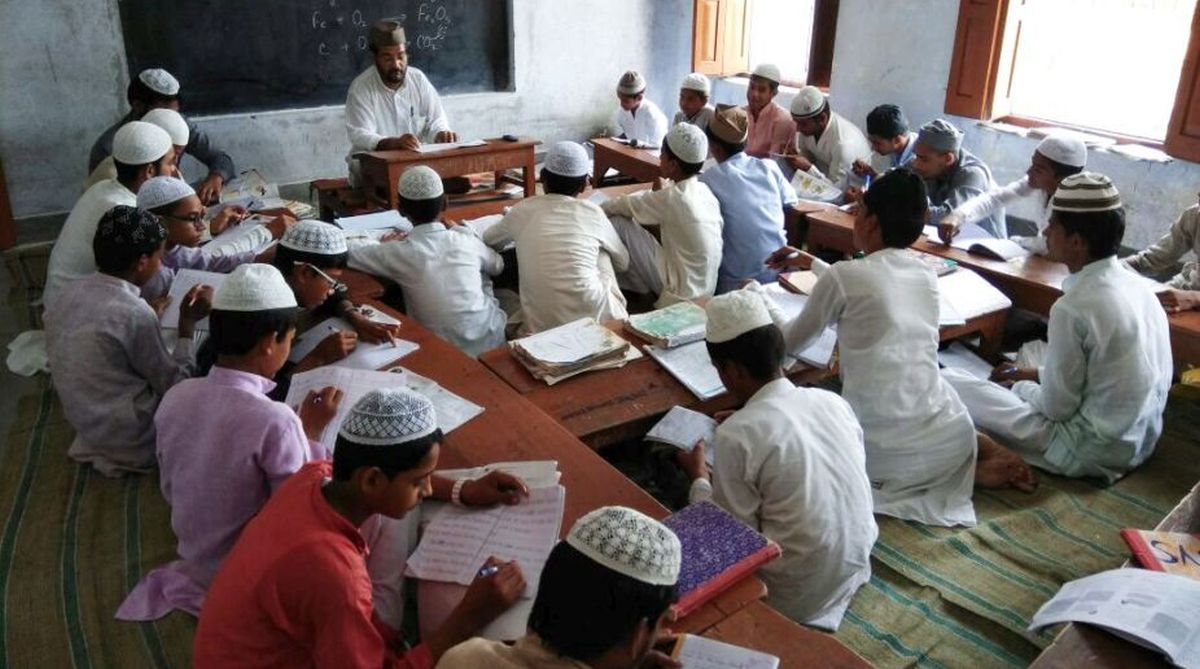In Anurag Kashyap’s Choked, that released on Netflix on June 24, paisa or penny speaks in the deglamourised, matter-of-factly, even guttural truth and is minted (almost exclusively) in people’s checkered dreams and desires.
Set in the backdrop of demonetisation, announced by Narendra Modi on November 8, 2016, in an unscheduled live national televised address, banning high-currency notes, to hit at black money, Choked tracks the life of Sarita Pillai played with equal parts strength and vulnerability by Saiyami Kher. A Marathi government bank teller, Sarita and her domestic world of husband, son and suburban home is set at the heart of the demonetisation upheaval.
In so many ways, Choked is both a literal and metaphorical symbol of the oppressive stress and the humdrum, non-rhythmic rhythm of every-day life that throttles love, passion and ambition
And yet, in so many ways, Choked is both a literal and metaphorical symbol of the oppressive stress and the humdrum, non-rhythmic rhythm of every-day life that throttles love, passion and ambition. It is in this stifling humidity of her life and kitchen that Sarita discovers bundles of currency notes stashed in the drainpipe that gurgles out plastic-wrapped minted beauties, while spewing out smelly, garbage-ridden watery liquid at the same time. It starts a new course in Sarita’s life as she realises how money can help her pay for her little yet significant and suppressed desires.
Also read: Film Review: Juice, A Cold, Sour Look At Male Entitlement In Our Houses
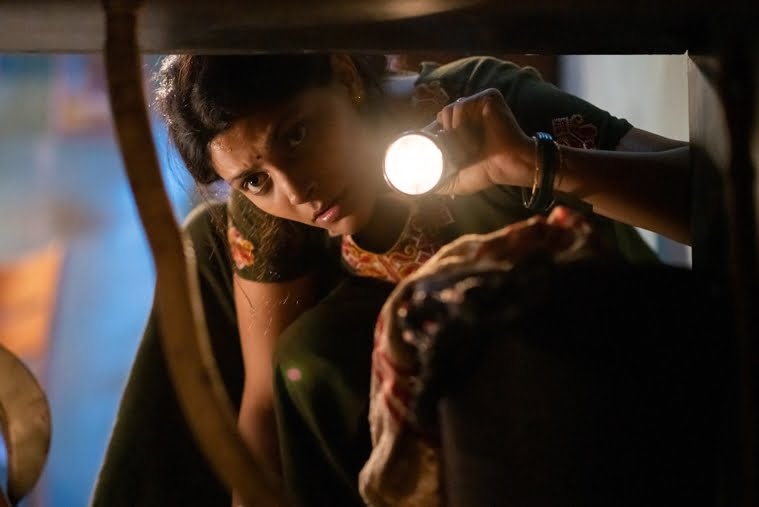
In Choked, Sarita is married to the carrom-playing, idle-talking, non-working Sushant, played convincingly by Roshan Matthew, who complains about too much aloo (potatoes) for dinner, and Sarita jibes: “Paneer khana hai toh paneer bano” (If you want to eat paneer, be a paneer). Moments like these that temper the socio-political commentary of Choked with the necessary domestic colour. For at the heart of it, it is Sarita’s story — the flashback sequence triggered by the fridge light in the dead of the night takes the viewer back to the stage where the voice of then aspiring singer Sarita choked.
Construction Of Gender
It is in the interconnected vacuum of their personal lives — Sushant, a “struggling” musician who has got too accustomed to brooding in the past and his wife’s taunts in the present, and Sarita, the failed singer but the sole bread-winner of their family — that their inter-personal discord comes alive.
Sarita, who dons her printed saris pinned to precision, has her mandir in her kitchen—faith and food being the two most important pillars of a middle-class household and the woman being the traditional anchor of both these spaces — wears her femininity and feminism quite lightly. She performs “labour” in her workplace — the government bank that pays her a salary and respect — while her domestic labour is unpaid and exacting. The textbook construction of sexual division of labour is evident here.
With Sarita’s centrally parted hair, kajal, small bindi, mangalsutra, nighties and a handbag that seems sourced from the local market, Choked lends detailed heft and realism to her character without the hyperbole of romance or fantasy.
At the same time, Kashyap and writer Nihit Bhave refuses to cast Sarita in the simplistic, submissive feminine mould. For Sarita is too everyday, too real and raw for that; her steady gait, fast-paced march over the railway bridge and across the road, and the way she clutches on to her handbag full of cash, are mannerisms of an everyday soldier. Meanwhile, like the plaster that chips off the ceiling and lands inside her neighbour, Sharvari tai’s cooking pot, and like the drainage problem plaguing her housing colony, Sarita’s haggling with the vegetable vendor and buying pretty dinner set, bedding and curtains to feel “richer”, makes her predictable too, without further irony. With her centrally parted hair, kajal, small bindi, mangalsutra, nighties and a handbag that seems sourced from the local market, Choked lends detailed heft and realism to her character without the hyperbole of romance or fantasy.
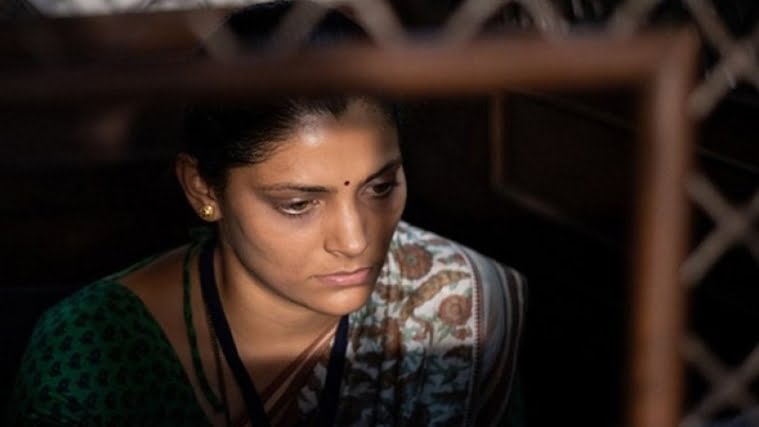
Also read: Kappela Film Review: Not Just The Villain, The Good Guys Are Bad Too
The Everyday Heroine
She is Sarita Pillai, nondescript yet not a sponge that soaks in; she can still be ambitious and to the point. Sample Sarita’s response to an elderly woman at the bank when she pleads with her asking if she has to come back the next day to withdraw some petty cash: “Yaha paisa milta hai, sympathy nahi.” (You get money here, not sympathy). Sarita, who soldiers through the debt routes of her husband and tries to negotiate with the goon-styled money lender with stoicism, vents out every now and then at Sushant, when she reminds him to lift their son as he is getting too heavy for her. Yet, not all love is lost between the two, as we later see Sushant’s still-in-love and human side.
Sarita is a star employee but does not hold a managerial position yet. Sarita gets her regular salaries and endowments but they are not necessarily enough for a beautiful life as she sees it, as she tells Sharvari (Amruta Subhash) tai, a single mother who has to manage the expenses of her daughter’s wedding all on her own. In Choked, Subhash invests tai’s character with flesh and blood, one that flows from comic to opportunist undertones. Money speaks to Sarita; there is the fear of the illicit here as it is not earned, though her concerns eventually outweighs the nervousness.
And it is not so much illicit after all; the stash of cash is “black”, and like the black hole, it is the cycle of Sarita’s suburban existence where love is lost and forgotten, comfort is compromised and never spoken about. In this drudgery and comicality in Choked, paisa is the secret elixir, that one-stop solution everyone wants, though its spell could be delusional. Paisa is not about morality but a matter of politics and economy that tells us that in the circus of the haves, it’s the have-nots that will dance the dance of mad indignity as the final sequences looping into a mass of much-ado-about-nothing tell us.
Choked – which is the tragic-comic world of the Pillais, portrays Sarita’s materialism in a way that subverts the tradition in the Hindi film industry that either paints women’s relationships with money as morally corrupt or light-headed. Remember, “Tu, paisa paisa karti hai, tu paise pe kyun marti hai; Ek baat mujhe batla de tu, Us rab se kyun ni darti hai” (why are you after money, why are you after money; tell me something, aren’t you afraid of the almighty?) composed and sung by RDB, performed by Akshay Kumar and Katrina Kaif in De Dana Dan (2009)? In Choked, Sarita, and even Sharvari, are only products of their times, devoid of the usual fantastical super women trope or romantic tinge.
Featured Image Source: India Today
